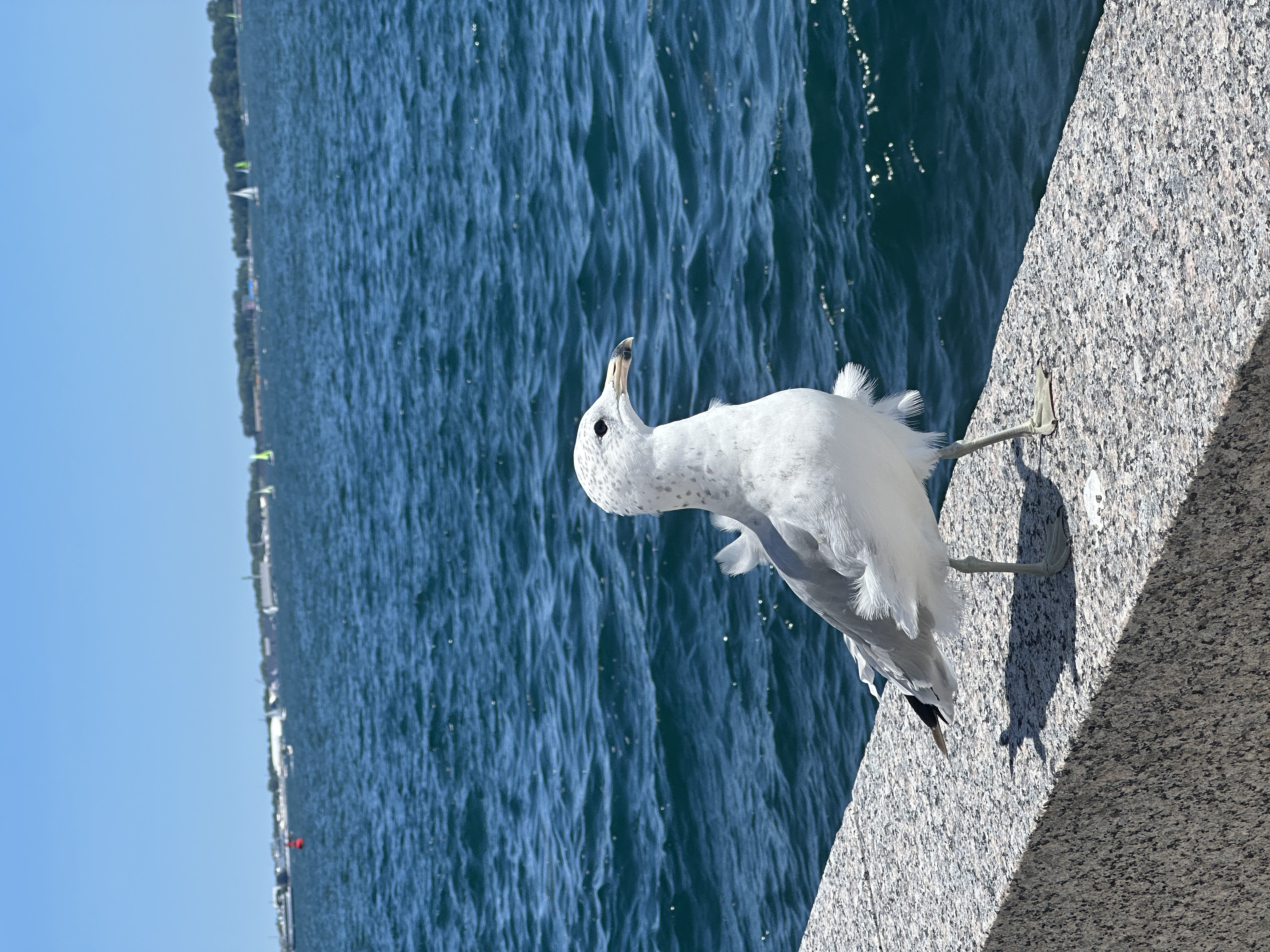
Every seagull counts
Legend has it that since July 2025, a group of people have been gathering by the Toronto waterfront every other Saturday to count seagulls. By “legend” I mean CBC Radio, and if something is on TV, it has to be legit, right?
The group meets up at a different park each time - from west to east, from Coronation Park, Music Garden, and HTO park to Toronto Islands, Biidaasige Park, and Sugar Beach. The rules are simple - when you spot a seagull, you count it. Contrary to common beliefs, it is encouraged to count a seagull more than once, as long as it changes its position. For example, if a flying seagull lands on the water, it can be counted a second time. The session lasts for one hour and participants can drop in any time they want. At the end of the session, the count from everyone will be added up to calculate a final count. As of today, 3,130 seagulls have been double-counted.
Seagull Counting Club, or SCC, was born on a Friday night. My Saturday plans were cancelled, and I needed something to do. As an inevitability for everyone who lives in the city, I came across Misha’s newsletter, Toronto Event Generator. Then one thing led to another. Through the first SCC event I met Jojo, who led me to TEG’s microgrant. The microgrant gave me a reason to broadcast the event at a conference. The conference gave me the idea of setting up (i.e. vibe-coding) a website and purchasing an extremely catchy domain name (seagullcounting.club). The counter on the website is a main reason that SCC is still happening. After the fact Jojo and I found out that the birth of SCC can be traced back as far as Sedona and the Burning Man, but for now we can keep it local.
Consider Sisyphus
Although I secretly wanted real humans to join me, SCC started as a joke. It is the same type of joke as the ones I posted on LinkedIn where I claimed I was gonna fix the winter water pressure of Lake Ontario. (As much as I thought it was obviously a brilliant joke I had an engineer friend asking me if my water pressure data project had made any progress.) The joke lies in the contrast between the seriousness of the structure and the absurdity in the content. The description “At Seagull Counting Club, we count seagulls.” elicits a similar confusion when people hear statements like “The purpose of math is to calculate” in which it says something but it says nothing at the same time.
This is why I was surprised when real people showed up to the events. They didn’t just show up, but returned and, I quote, “have been looking forward to counting seagulls the whole week.” After 33 humans connected and 3,130 seagulls double-counted, I started to think they saw something I missed.
However, a consensus among people who first heard about the idea is usually to question the motivation, the capital W. Why do you do this? What do you want to get out of it? How did you come up with this idea? Why would people spend an afternoon doing something like this? The questions imply an assumption: there is no point in counting seagulls whatsoever.
Although those folks are not wrong, what’s interesting is that people generally have no trouble with the majority of this activity. If you really think about it, there is nothing out of the ordinary for a group to gather bi-weekly. It is completely normal to enjoy time outdoors by a body of water. It is more than socially acceptable to pay attention to birds in the wild (there are even Apps for that). And yet, when you combine the elements, it turns into an absurd activity that is newsworthy.
The answer to the capital W question lies in the question itself: there is no reason, no motivation, no “why”.
Consider Sisyphus, the character from Greek Mythology who was punished to push up a boulder only for it to roll back down for eternity. Counting seagulls the way we do is a lot like when the boulder falls downhill - when a seagull changes its position it can be counted again; this means the final count adds no value to anything. The numbers could be completely made up and it does not change the essence of the result. Counting seagulls is pointless, and because of this, there is no reason why we’re doing it. What matters more than the motivation behind Sisyphus pushing up the boulder is the fact that he was, and probably is still, doing it.
Searching for meaning
In Waiting for Godot, two men wait for Godot who never arrives. The whole play is about the friendship and conversations between the two, though the end goal, i.e. the arrival of Godot, is never achieved. I did not draw the connection between the waiting and the counting when I created the first event. It was the stack of paper I gave out at the beginning of each session that made me realize that I might have been part of the co-creation of SCC in real time.
There is no inherent value in counting seagulls on a collective level; however, there could be meaning on the individual level.
For me, a lack of purpose is the counterargument I tried to make, emerging from the best practices of accuracy and de-duping in analytics. The serendipity where Saturday’s cancelled plans turned into a fun phenomenon is the cherry on top. For other people, it could be the gathering, the nice summer afternoons, the parks, or even the genuine fondness towards birds. The personal ritual built through SCC becomes the reason that brings people back individually.
The counting and waiting demonstrate an inside-out value experience when we compare it to the series of life events quoted in Trainspotting: a life, a job, a career, a family, and a big television. There may or may not be an external goal but it doesn’t matter. There is a world where meaning can be chosen and built from scratch, even when it looks the same from the surface.
I've chosen and chosen again.
